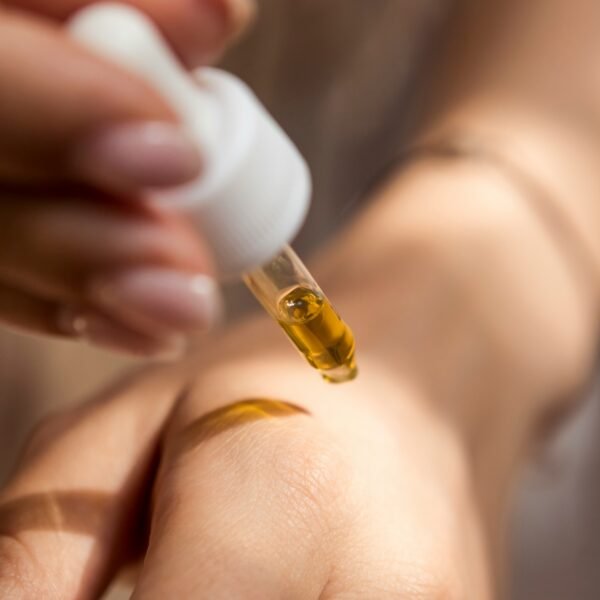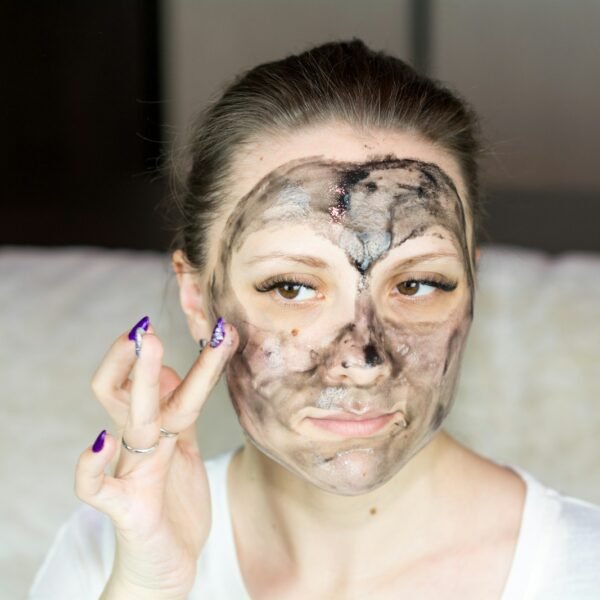Today, we’re tackling a question that’s been on many of our minds: Do almonds really cause acne?
Understanding the connection between diet and skin health is crucial for maintaining flawless skin. With so many myths and misconceptions about certain foods and their impact on acne, it’s essential to get the facts straight.
When it comes to our skin, knowledge is power, and as someone passionate about skincare and all things wellness, I’m here to arm you with all the info you need to make informed choices for your skincare routine.
Let’s explore the relationship between almonds and acne to help you make informed decisions about your skincare routine.
The Role of Diet in Acne
It’s well-known that what we eat can significantly impact our skin’s health and appearance.
Here’s how diet and acne are connected:
- Diet can affect hormone Levels:
- Certain foods can influence hormone production. High-glycemic foods (like sugary snacks and refined carbs such as white rice, and white bread) can spike blood sugar levels, increasing androgen hormones that can trigger acne. Dairy products might also affect hormone levels causing hormonal fluctuations due to growth hormones and bioactive molecules they contain.
- Diet can cause Inflammation:
- Foods high in sugar and unhealthy fats can promote chronic inflammation. Inflammatory responses can lead to or worsen acne, making the skin more prone to breakouts.
- Diet can improve overall Skin Health:
- Vitamins and minerals from a balanced diet are essential for skin health. Foods rich in antioxidants (like flax seeds, fruits, and vegetables) help combat oxidative stress and support skin repair. Omega-3 fatty acids (found in fish, flaxseeds, and walnuts) can reduce inflammation and support healthy skin, thus preventing acne from occurring.
Maintaining clear, healthy skin is about more than just skincare products—it’s also about what you eat. A balanced diet with plenty of fresh produce, lean proteins, and healthy fats can make a significant difference.
Benefits of Almonds on Skin Health
Almonds are more than just a tasty snack—they’re packed with nutrients that can benefit your skin.
First, let’s explore the nutritional benefits of almonds:
- Vitamins and Minerals:
- Almonds are rich in Vitamin E, a powerful antioxidant that protects skin cells from damage.
- They also contain magnesium, which helps to regulate skin health and repair.
- Other nutrients include B vitamins, zinc, and selenium, all essential for maintaining healthy skin.
- Healthy Fats:
- Almonds are high in monounsaturated fats, which help to maintain skin’s hydration and elasticity.
- These fats can support the skin barrier, preventing dryness and irritation.
Now, let’s discuss the potential benefits of almonds for skin health:
- Antioxidant Properties:
- The Vitamin E in almonds helps to fight free radicals, reducing oxidative stress and preventing premature aging.
- Antioxidants can also reduce inflammation, which is beneficial for those prone to acne.
- Hydration and Elasticity:
- The healthy fats in almonds help to keep your skin moisturized and supple.
- Proper hydration is crucial for maintaining a healthy, glowing complexion.

Research claims associating Almonds with Acne
Understanding the research can help us separate fact from fiction and make informed choices about our diets.
Several studies have investigated the relationship between diet and acne, but the evidence specifically linking almonds to acne is limited. However, some research points to how certain components in almonds might influence skin health indirectly.
1. Let’s consider the high-fat content of almonds.
- Almonds are packed with healthy fats.
- Concern: These fats could increase oil production in the skin.
- Potential Outcome: Increased oil production might clog pores, leading to breakouts.
However, it’s important to note that not all fats are created equal, and the monounsaturated fats found in almonds are generally considered skin-friendly.
2. There’s the hormonal aspect.
- Almonds contain phytoestrogens, which mimic estrogen in the body.
- Concern: These could theoretically cause hormonal imbalances.
- Potential Outcome: For those prone to hormonal acne, this might exacerbate the issue.
The phytoestrogen content in almonds is relatively low compared to other foods, making it unlikely to have a significant impact on hormone levels for most individuals.
Expert’s opinions about link between almonds and acne?
Let’s tackle the myth head-on: do almonds cause acne? To answer this, we’ll look at the scientific research and expert opinions that examine the relationship between almonds and skin health in recent research.
Firstly, it’s important to note that there is no robust scientific evidence directly linking almond consumption to acne.
Several studies have explored diet and acne, but almonds rarely emerge as a direct cause or clear proof. Instead, research often highlights the role of high-glycemic foods, dairy, and processed sugars in exacerbating acne.
One study published in the Journal of the American Academy of Dermatology examined the effects of various foods on acne and found that high-glycemic diets and dairy products were more likely to contribute to acne than foods like almonds.
Almonds, rich in healthy fats, vitamins, and minerals, are generally considered beneficial for overall health, including skin health.
Experts also weigh in on this topic. Dermatologists and nutritionists often emphasize that while individual reactions can vary, almonds are unlikely to cause acne for the majority of people.
Dr. Whitney Bowe, a renowned dermatologist, suggests that the antioxidant properties of almonds, particularly their Vitamin E content, can actually help protect the skin from oxidative stress and inflammation, which are factors in acne development.
Misconceptions about almonds causing acne may stem from the belief that all fats contribute to sebum production and clogged pores.
However, the monounsaturated fats in almonds are quite different from the unhealthy fats found in fast food. These healthy fats support skin hydration and elasticity without the adverse effects linked to saturated and trans fats.
It’s also worth considering individual differences and potential triggers. Some people might experience breakouts due to allergies or sensitivities to certain foods, including almonds. However, these instances are not reflective of the general population.
Bottom Line
In conclusion, almonds have been unfairly blamed for causing acne, yet scientific evidence suggests otherwise. Rich in essential nutrients like Vitamin E and healthy fats, almonds offer numerous benefits for healthier skin without directly contributing to breakouts.
Achieving clear, radiant skin involves more than just dietary choices. It’s about adopting a holistic approach to skincare, encompassing healthy lifestyle habits, consistent skincare routines, and balanced nutrition.
So, embrace almonds as part of your healthy diet, but also prioritize overall well-being for optimal skin health and vitality.
We want to hear from you. Share your thoughts, experiences, and insights on almonds and acne in the comments section below.





Leave a Reply